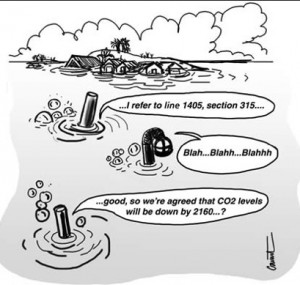Cimate and jobs. Unions warn that a weak EU cllimate deal risks jobs. PHilips and SHell call for ambitious energy package. Nearly a million potential jobs will be lost if EU leaders fail to agree strong climate and energy targets at a summit starting on Thursday, according to the head of Europe’s trade union movement.
Europe’s heads of state are set to sign a deal which proposes a binding 40% greenhouse gas cut by 2030 and two goals which will not be binding on member states, one for a share of 27% of energy coming from renewable sources and another for a 27% improvement in energy efficiency.
Disagreements with eastern European states on ‘burden sharing’ to meet the targets and energy security issues in the final package are said to be narrowing.
But Bernadette Ségol, the leader of the ETUC which represents around 60 million workers, warned that the proposed targets were too low to reap the benefits of a new clean energy economy.
“Energy efficiency and renewable energy targets create jobs,” she told the Guardian. “The lower the target, the fewer the jobs that are created. Governments opposing ambitious and binding targets are wasting an opportunity to reduce Europe’s shameful levels of unemployment. Politicians risk throwing away up to 823,000 new jobs that could be created by more ambitious targets.”
The 823,000 jobs number is the result of ETUC analysis Ségol called for a “just transition” to a low-carbon economy that treated workers and communities affected by energy intensive job losses fairly, while noting that climate change posed an “existential challenge to humans.”
Germany and Denmark favour most robust renewables and energy efficiency goals as do the European commission’s incoming president, Jean Claude-Juncker, as well as the outgoing climate and energy commissioners.
ETUC would prefer a more robust binding target of 40% for energy efficiency improvements, as opposed to 27% and non-binding, and a binding target to improve renewables by 30%.
But such aspirations have been opposed by the UK. With one eye on the rise of Ukip, David Cameron has let it be known that he prefers a single greenhouse gas target that would prevent Brussels from interfering with plans for the expansion of nuclear energy and shale gas.
“We think that a [single] 40% target for greenhouse gas emissions is very ambitious,” Beyrer said in Brussels. “But the EU cannot afford to do it unilaterally. We see this as a negotiating position for the COP21 [UN climate] summit in Paris.
A spokesman for Knauf described Beyrer’s statement as “rubbish”.

